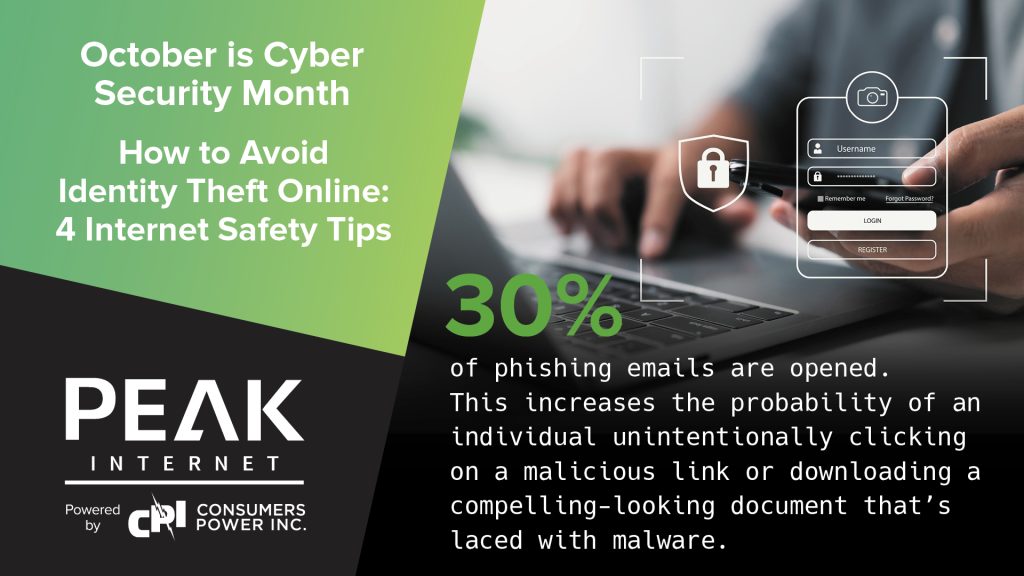Protecting Yourself Against Identity Theft and Fraud

In today’s digital world, you are more likely to have your identity stolen than your car stolen,
or your home burglarized. While it is hard to prevent identity theft, it’s important to be
aware of several guidelines to protect yourself from identity theft and fraud.
- Basic online security review from last week
- Protect your computer and smartphone with up-to-date software.
- Protect your personal information with strong passwords and back up important data.
- Use Two-Factor Authentication
- Install antivirus/anti-malware protection.
- Learn to identify and avoid scams
- PHISHING EMAILS: These scam emails have gotten very sophisticated, even using bank and other company logos and official-sounding language to trick the targeted recipient into providing them with personal information. If you receive this type of email, don’t click on it – call your bank, credit card company, or other organization directly and verify that they sent the message. In all cases, if you don’t recognize the sender, it’s best to delete the email without even opening it.
- EMAIL SPECIAL OFFERS: Email “special offers” and “amazing deals” can sometimes be what’s known as “click bait,” meaning the message is intended to get you to click on it. This can introduce a virus on your computer or give outside users access to your computer files without your knowledge.
- TELEPHONE SPECIAL OFFERS: Be aware of telephone scams. There is an increase in calls where identity thieves will say anything to cheat people out of money and/or information. Signs of a scam include when the person on the other line says: “You’ve been specially selected for an offer” or “You’ll get a free bonus if you buy our product” or “You’ve won one of five valuable prizes.”
- PHONE CALLS ASKING FOR PERSONAL INFORMATION: If you are asked for personal information on a website or over the phone, be cautious with what you provide. Remember, agencies such as the IRS, banks and credit accounts will not call you and ask for your personal information such as your social security number, date of birth or passwords.
- SILENT CALLS: Be aware of initial “silent calls” – that is, when you pick up and hear silence on the other end of the line. They are trying to see if you are a human answering and will call back later.
- TELEPHONE VOICE RECORDING: If an unknown person calls and asks you to respond to a series of questions that get you to say “yes” or your full name, be aware. They may be recording your voice to authorize fake charges on one of your accounts. This may include the “Can you hear me?” question that uses your response of “yes” or asks you to state your full name.
- PHISHING EMAILS: These scam emails have gotten very sophisticated, even using bank and other company logos and official-sounding language to trick the targeted recipient into providing them with personal information. If you receive this type of email, don’t click on it – call your bank, credit card company, or other organization directly and verify that they sent the message. In all cases, if you don’t recognize the sender, it’s best to delete the email without even opening it.
- Safeguard your information
- Shred sensitive documents such as old benefits documents, bills, etc.
- Regularly check to ensure the names and information of your beneficiaries are correct.
- Sign out of accounts when you are finished with the session.
- Share less, including on social media, when the information you post could give identity thieves clues to your birthplace, date of birth, and other data that could be used to steal your identity.
- Monitor your credit scores. By law, you have the right to three free credit reports per year: from Experian, Transunion, and Equifax.
These three credit bureaus work together through a website called AnnualCreditReport.com. You can quest all three reports at once in one of the following ways:
- Go to the Web site. Through this highly secure site, you can instantly see and print your credit report.
- Call toll-free: (877) 322-8228. You’ll go through a simple verification process over the phone after which they’ll mail the reports to you.
- Request by mail. If you live in certain states, fill out the request form and mail it to the Annual Credit Report Request Service, P.O. Box 105281, Atlanta, GA 30348-5281. (Get more details.)
Note: You will have to wait a year to get it free of charge again from the same credit reporting company. However, you can pay for a copy of your credit report at any time or utilize free services like Credit Karma to monitor your credit activity.
- Review your credit score. Look to see if there are new credit cards, loans or other transactions on your account that you are not aware of. If there are, take immediate steps to have these terminated and investigated.
- Freeze your credit. Criminals use stolen IDs to open new lines of credit. You can thwart their efforts to use your identity by simply locking (called freezing) your credit so that no new credit can be given without additional information and controls. Many states have laws giving you the right to a free credit freeze, but even where states don’t provide legal mandates, the large credit bureaus provide a voluntary security freeze program at a very low cost.
Consistently applying these eight steps to both defend and monitor your credit score will reduce the risks of having your identity stolen and alert you instantly if such a problem arises.

